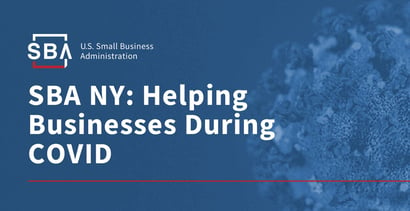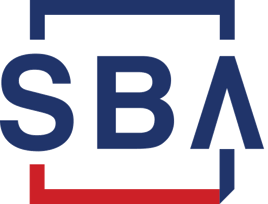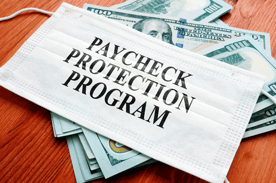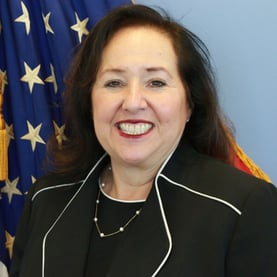

In a Nutshell: The U.S. Small Business Administration was tasked in March with facilitating a portion of the CARES Act, which was signed into law to help businesses stay afloat through the COVID-19 pandemic. We recently spoke with the SBA New York District Director Beth Goldberg to learn more about how the SBA has been carrying out its new mission. Goldberg said the SBA has been working diligently to educate the public and lending institutions about available relief programs. Some of the main loan programs enacted through the CARES Act include the Paycheck Protection Program, Economic Injury Disaster Loans (EIDL), SBA Express Bridge Loans, and SBA Debt Relief.
The CARES Act was signed into law in March once it became clear that COVID-19 was a serious threat to the physical and economic health of U.S. residents.
The act, also known as the Coronavirus Aid, Relief, and Economic Security Act, is a $2.2 trillion stimulus bill designed to help keep the U.S. economy and its residents afloat during this challenging time. Within the act, $376 billion was designated for relief for American workers and small businesses.
 Congress moved quickly to assemble and pass the CARES Act into law and it has a lot of moving parts and involves several entities to make it work.
Congress moved quickly to assemble and pass the CARES Act into law and it has a lot of moving parts and involves several entities to make it work.
For example, the U.S. Small Business Association (SBA) was tasked with handling the $376 billion for workers and small businesses and carrying out loans and other protection programs built into the act.
We recently spoke with Beth Goldberg, the SBA New York District Director, to learn more about how the SBA has been able to handle this enormous undertaking in general, and how the New York office has helped businesses and workers in recent months.
“Just before this whole pandemic broke out, people were saying 1 out of every 2 jobs were being supported by small businesses in the country,” Goldberg said. “So small business is really critical.”
Not only do small businesses play a crucial role in the overall health of the U.S. economy, but they are also crucial to the health of neighborhoods and communities, she said.
The CARES Act, Paycheck Protection Program, and Other Loans to Help Businesses
As a cabinet-level federal agency, the SBA implements acts of Congress that have been signed off on by the U.S. president.
“Our nation’s small businesses are facing an unprecedented economic disruption due to the Coronavirus (COVID-19) outbreak,” according to the SBA website. “In addition to traditional SBA funding programs, the CARES Act established several new temporary programs to address the COVID-19 outbreak.”
These programs include the Paycheck Protection Program (PPP), Economic Injury Disaster Loans (EIDL), SBA Express Bridge Loans, and SBA Debt Relief.

The Paycheck Protection Program is part of the CARES Act that helps businesses keep employees on the payroll.
The Paycheck Protection Program, which officially closed on August 8, was a front-line program designed to help small businesses keep their employees and weather the economic storm caused by the pandemic.
“The Paycheck Protection Program is a loan designed to provide a direct incentive for small businesses to keep their workers on the payroll,” according to the SBA website. “SBA will forgive loans if all employee retention criteria are met, and the funds are used for eligible expenses.”
Goldberg said the SBA embarked on major outreach efforts to get as many institutions on board as possible to help with outreach.
“The lending institutions are lending their money and using our guarantee,” Goldberg said. “So by signing them up to be eligible for our guarantee, we’ve empowered a lot of funding institutions to use our program for the PPP.”
Meanwhile, the EIDL program was designed to provide economic relief to small businesses and non-profit organizations that are currently experiencing a temporary loss of revenue, according to the SBA.
Goldberg said PPP loans, the EIDL program, the SBA Bridge Loan program, and SBA Debt Relief are intended to simply help businesses stay afloat.
“They are to provide basic working capital needs because of the pandemic,” she said. “It’s not to expand your business or buy a building or open a new business.”
Working with Lending Partners to Secure the Loans
“One part of our mission is to train our lending partners and make them comfortable with our programs,” Goldberg said. “And we increased our number of lenders nationwide from about 1,200, just under 5,500.”
Goldberg said her office, which covers the Metro New York region, has worked diligently to get the word out and help lenders prepare to facilitate the SBA loans.

Beth Goldberg is the SBA New York District Director.
She said the office led a mass effort to disseminate information through its partners, which it helps to support financially, including small business development centers located on college campuses and women business centers. Goldberg mentioned that various SBA resource partners, such as the Service Corps of Retired Executives, SCORE, volunteer their time mentoring and counseling small business owners and entrepreneurs to bring their ventures to the next level.
“We’ve also been working with chambers of commerce and media companies to get the word out about, ‘What is PPP?’ and ‘What is EIDL?’” she said. “And how to most appropriately prepare yourself and to be able to prepare successful applications.”
With the office’s tireless efforts, Goldberg said some have referred to its employees as the frontline workers of the economy.
“We’ve been chartered with this unusual and enormous mission by Congress to implement the CARES Act, and we’ve been doing that,” she said. “We’ve been busy being very responsive to those two audiences — the public and the lending institutions.”
As far as what comes next, Goldberg said the SBA can only wait and see. As of the time of this writing — in mid-August — the Senate has gone on recess until September and no new coronavirus relief package has been agreed upon by Democrats and Republicans.
The SBA Provides Free Business Advice
Today’s circumstances are unprecedented. But the SBA has been around since 1953 carrying out its mission “to ignite change and spark action so small businesses can confidently start, grow, expand, or recover,” according to the organization website.
In other words, the SBA knows what it’s doing. That also means the SBA is there to help small businesses any time, not just during economic downturns like the one we are currently experiencing.
Businesses can visit the SBA website to learn about the resources that may be available to them.
But of all the tools and resources available, Goldberg clued us into one of the most valuable services the SBA offers.
“The best thing business people could do, in my opinion, (to bridge the knowledge gap) is to seek the advice of a business advisor, and it’s a free service,” she said. “That would involve going to our SBA resource partners.”
This includes small business development centers, like the ones on college campuses and at women’s business centers as well as SCORE and the Veterans Business Outreach Center, where people can receive one-on-one counseling.
“In tennis, even the pros have coaching right up until the minute before their grand slam matches,” she said. “And businesses have to take that mentality and seek advice on how to do what they really need to do to sustain their business through the next few months.”
Goldberg explained that businesspeople can actually select counselors based on their professional backgrounds to best suit their needs and goals.
As the U.S. continues to navigate the healthcare and economic challenges presented by the COVID-19 pandemic, the Small Business Administration will carry on with its mission to support small businesses and workers.
Advertiser Disclosure
BadCredit.org is a free online resource that offers valuable content and comparison services to users. To keep this resource 100% free for users, we receive advertising compensation from the financial products listed on this page. Along with key review factors, this compensation may impact how and where products appear on the page (including, for example, the order in which they appear). BadCredit.org does not include listings for all financial products.
Our Editorial Review Policy
Our site is committed to publishing independent, accurate content guided by strict editorial guidelines. Before articles and reviews are published on our site, they undergo a thorough review process performed by a team of independent editors and subject-matter experts to ensure the content’s accuracy, timeliness, and impartiality. Our editorial team is separate and independent of our site’s advertisers, and the opinions they express on our site are their own. To read more about our team members and their editorial backgrounds, please visit our site’s About page.




